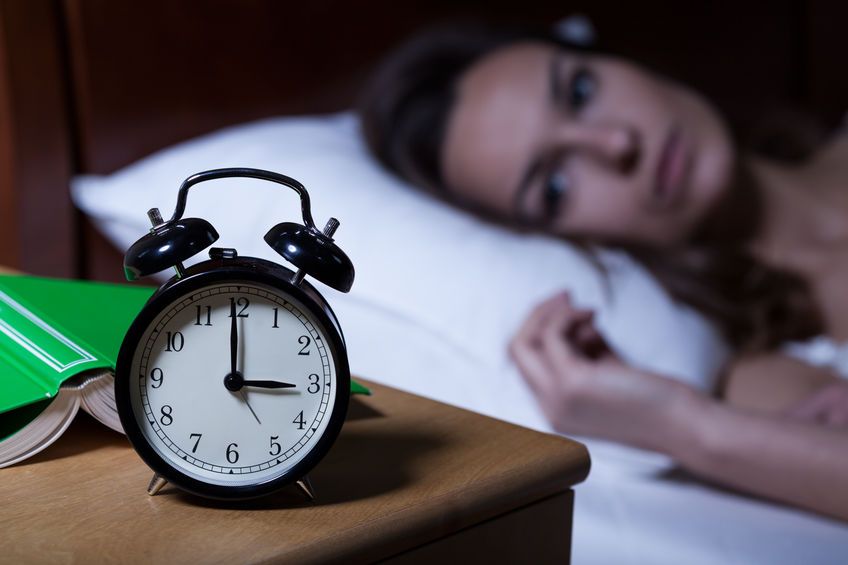Poor sleep is a common problem. Many people find it difficult to fall asleep, or they wake up at night, have to go to the toilet repeatedly, or they get up tired in the morning. All sorts of reasons are possible. But there is one thing bad sleepers have in common: their nervous system is chronically out of balance: stimuli and stress cause excessive physical and cognitive-emotional reactions. For too long, the body and mind are in a state of alertness which makes it very difficult to fall into deep restorative sleep.

People with insomnia are usually advised to ensure better sleep hygiene, to do more exercise, drink less caffeine and alcohol, and to be exposure to (blue) light in the evening. Relaxation exercises are also recommended. The purpose of these measures is to calm the mind and let the body relax. But one aspect is usually forgotten: retrain your breathing.
Insomnia and breathing
In people who sleep well, we usually see calm breathing. In people with insomnia though, the breathing is disordered. Sleep studies show that people often wake up after a disruption of their breathing. This can range from snoring or a breathing stop to a cough or an accelerated breathing pattern (hyperventilation).
Things may also happen the other way around. When you are mentally agitated in your sleep (e.g. in a dream or nightmare) your breathing can become disrupted and the airflow at the top of the airway obstructed. In this situation, the sympathic nervous system – our ‘fight-flight system’ – is activated, which leads to heavier breathing. You wake up, feel the excitement and you can hardly, or even not at all, fall back to sleep.
Breathing, nervous system and sleep
Poor sleep occurs when two sides of the autonomic nervous system – the sympathetic and parasympathetic nervous system – are out of balance. An important brain nerve is the vagus nerve which runs all the way from the brain stem to the organs in the abdomen. It regulates all vegetative functions, including breathing, digestion, heart rate, blood pressure and circulation. Research from 2019 suggests that slow breathing stimulates the vagus nerve in such a way that the activity of the autonomic nervous system is balanced. The parasympathetic nervous system – the ‘rest and digest’ system – is strengthened and the overactive sympathetic system – the ‘fight-flight system’- is tempered.
The same research shows that reducing the breathing rate to six times a minute is most effective against insomnia. This breathing rate ensures that the heart rate and the breathing pattern are better aligned. The activity of the parasympathetic nervous system increases, which makes the body and mind relax and vigilance disappear.
Buteyko exercises
Developing a calmer and slower breathing pattern is important for solving your sleeping problems. The Buteyko breathing exercises are ideally suited for this. They not only rebalance the autonomic nervous system, but they also stimulate the oxygen supply to cells, tissues and organs. This results in more efficient cell metabolism and higher energy levels.
Buteyko tips for better sleep
- Breathe slowly: do a Buteyko exercise for 15 minutes before going to bed.
- Nasal breathing: make sure you breathe through your nose at night.
- Preferably sleep on your left side or on your belly.
- Do not use (large) meals before bedtime and do not drink alcohol (it’s a ‘stimulant’).
- Use the bedroom only for what it is intended for: sleeping … and making love.
- If necessary, sleep with a scarf or a Buteyko belt.
Learning Buteyko
You can learn the Buteyko method in an individual course, with meetings live or online (by video calling), or with a combination of the two. At our office in Hoofddorp, the sessions will take place in compliance with all Corona measures.
For children and teenagers up to about 14 years there is a special program.
How is your breathing now?
Buteyko has developed a simple test: measuring the Control Pause. This test is explained here.
With children up to 13 to 14 years of age, we use a different measurement method; we count their ‘steps’. Please contact us if you want to try this at home.
Do you suffer from insomnia?
Please feel free to contact us and request a free consultation. Or read more about out the content of the Buteyko course and how to sign up.
